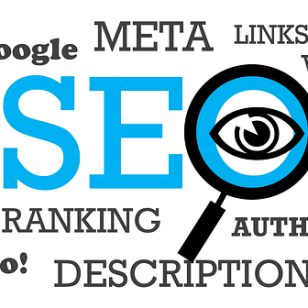By Claire Fisher
Southern Tier Communications Strategies, LLC
Yes, AI is powerful. POW-ER-FUL! It wrote this blog – well, some of it. (Listen closely, because there’s a lesson here.)
We started experimenting here with ChatGPT as soon as it went mainstream. It’s a lifesaver for a strat-comm agency like ours that prioritizes digital marketing for small nonprofits and businesses. We use it every day. If you don’t, you’re already 10 steps behind.
The sheer volume of content it creates.
The ideas it generates.
The efficiency.
But artificial intelligence isn’t a miracle solution. Digital content still needs the human touch. AI alone in content strategy and production falls short.
Why Does AI Content Need Human Guidance?
AI generates content at an incredible speed. While valuable, if used correctly, it cannot replace the human element of mindful and impactful storytelling.
Many small organizations took the news of mainstream AI as a godsend. Unlikely (or unable) to invest in digital marketing and PR outreach themselves, decision-makers salivated over being able to prompt a machine to write a blog and – BOOM! – a blog conjured in seconds before their very eyes. Great!
But was it well-written? Was it search-engine optimized? Was it written for your audience? Was it even accurate? We’ve found, like others in the communications industry, that artificial intelligence for content production is a great starting point. The lone benefit, albeit a big one, is not having to write everything from scratch.
We’ll let AI explain for itself why AI isn’t enough on its own.
Complexity & Creativity
Content strategy and production requires more than simply generating text and copying it over. It requires a creative mind, deep critical thinking, and familiarity with the target market. AI can’t write with nuance, interpret emotion, or respond to the needs of a specific audience. The human element builds brand recognition and relatability that cannot be replicated by AI algorithms. Humans infuse their work with personality and storytelling techniques that establish a distinct identity.
Context & Tone
Digital content involves context, tone, and the voice of a brand or group. While AI can analyze data and identify patterns, it struggles with the nuances of language and prior knowledge. Human strategists use their knowledge to ensure content meets the desired tone and answers users questions.
Emotion & Empathy
One of the greatest limitations of AI is its inability to empathize with human experiences. Effective storytelling in any industry requires connecting with the audience on a vulnerable level, evoking empathy, and building meaningful connections. A human touch captivates readers in ways that AI-generated content cannot by using empathic thinking and appealing to common human condition.
Authenticity & Originality
Authenticity is essential for building trust and credibility. AI wasn’t designed to create its own unique ideas, as it relies on the instructions of humans. Humans have the innate ability to challenge mainstream thinking and incorporate new perspectives. AI for content production is designed to create generic, formulaic content that fails to stand out in the expansive and multifaceted digital landscape.
Flexibility & Adaptability
Digital content strategy and production requires flexibility to changing landscapes, industry trends, and responses from audience preference. Humans possess the quick thinking to pivot strategies, experiment with new approaches, and revise content in real-time. AI relies on pre-programmed algorithms and formulas, making it less adaptable to real-world content needs.
Limitations in Quality & SEO
AI is great for producing mass quantities of content rapidly, but it often produces content that lacks originality and language required for effective search engine optimization (SEO). Sophisticated search engines easily recognize spam content. AI-generated content exhibits the same patterns that search algorithms detect as low-quality, resulting in lower search engine rankings. Humans know SEO and can mindfully craft messaging accordingly.
AI also sometimes inserts random, often-inaccurate facts to fill gaps in its knowledge.
Natural Language Processing Challenges
Natural language processing (NLP) is a branch of AI that focuses on understanding and generating human-specific language. While NLP has made advancements, it still faces challenges in interpreting content purpose and nuances in language. This leads to robotic, awkwardly phrased messaging that lacks flow to engage readers.
The Value of Human Expertise vs. Artificial Intelligence in Digital Content Creation
No one’s asking you to choose. The great thing about artificial intelligence in content creation is you CAN have the best of both worlds. AI is a great tool for volume. It’s perfect for brainstorming ideas. It augments our human expertise. It needs human emotion, understanding and optimization to evolve into effective storytelling.
Prompt it to write as many blogs, social media posts, hashtag suggestions, or press releases as you want. Go to town! Produce dozens or even hundreds at a time! But those responses are NOT the end product. They’re a start. Entire sections of AI-generated blog posts will likely need to be revised – or deleted. More content topic suggestions returned by ChatGPT are unusable than useful. But if you ask it for 50 and you get 25 that might work, that’s a 25-topic head start.
You just saved hours of valuable time! The human touch gets it across the finish line. And if you need digital content expertise beyond that, that’s where we come in.








Artificial Intelligence in Strategic Communications: AI Isn’t Enough on Its Own - Grand River Agency
August 8, 2023 @ 3:13 pm
[…] astonishing to plug in a content idea and watch AI spew out hundreds of words in just seconds for your digital marketing blog, social media presence, grant proposal or whatever. […]